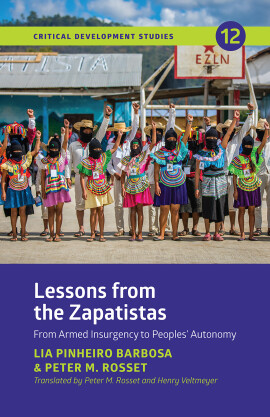
The Congress of the Disappeared
A drama in prose
‘They came from all corners of the country. At last the Brazil of the disappeared revealed itself.’
In Kucinski’s novella, the ghosts of those disappeared by Brazil’s military dictatorship come together and organize a congress. Together, these ghosts tell the story of what happened to them, reflect critically on their past militancy, and debate how to respond to the “outbreak of fascism” of the Bolsonaro period.
These veterans from the struggle of the 1960s and 70s are joined in this endeavour by some iconic figures from Brazilian history, as well as more recent victims of state and para-state violence. These include young black men killed in the favelas, Indigenous Brazilians, and people murdered in the countryside for opposing the expansion of agribusiness and wildcat mining.
In the imagined space of the congress, Kucinski draws a line from the state violence of Brazil’s military dictatorship (and since) to the genocide and slavery of the colonial period in Latin America. He gives a voice to the victims, especially the disappeared, allowing them to challenge the attempt to erase them from history and denounce a culture of impunity which continues to pollute Brazilian politics today.
Series: Latin America Bureau Books
Published: 2025
Pages: 132
eBook: 9781788534253
Paperback: 9781788534222
In Kucinski’s novella, the ghosts of those disappeared by Brazil’s military dictatorship come together and organize a congress. Together, these ghosts tell the story of what happened to them, reflect critically on their past militancy, and debate how to respond to the “outbreak of fascism” of the Bolsonaro period.
These veterans from the struggle of the 1960s and 70s are joined in this endeavour by some iconic figures from Brazilian history, as well as more recent victims of state and para-state violence. These include young black men killed in the favelas, Indigenous Brazilians, and people murdered in the countryside for opposing the expansion of agribusiness and wildcat mining.
In the imagined space of the congress, Kucinski draws a line from the state violence of Brazil’s military dictatorship (and since) to the genocide and slavery of the colonial period in Latin America. He gives a voice to the victims, especially the disappeared, allowing them to challenge the attempt to erase them from history and denounce a culture of impunity which continues to pollute Brazilian politics today.
| Foreword By David Treece | |||
|---|---|---|---|
| The Congress of the Disappeared: A drama in prose | |||
| Afterword | |||
| Acknowledgements | |||
| Glossary of names, places and events |
‘The book is both product of and reaction against the “outbreak of fascism” which we experienced recently. It makes it clear that our task now is to establish enduring memory, to fight the fascism of today and organise society in such a way that fascism cannot prosper.’
Marcio Selligman-Silva, literary critic, essayist and Professor at UNICAMP, the State University of Campinas, Brazil
‘The turbulent period of the military regime should have led, amongst other things, to clear and detailed self-criticism, on both sides. But this was impossible for those who died. Bernardo Kucinski’s prose drama brings back to life those men and women who never had the opportunity, in their final minutes, to unburden themselves, to settle scores, or even to make confession.’
Marcelo Rubens Paiva, novelist, playwright and screenwriter, whose own father Rubens Paiva was disappeared under the military dictatorship. His memoir ‘Ainda estou aqui’ was adapted for the 2024 Oscar-winning film ‘I’m Still Here’. From ‘Fantasmas da ditadura’ (‘Ghosts of the dictatorship’), in Brazilian literary review Cuatro Cinco Um
‘As well as recovering historical figures and anonymous victims of the bloodthirsty rage of the repressive apparatus, the writer confidently brings out the macabre. He locates each new massacre in the parade of horrors which has been in place ever since colonial times, his use of black humour essential to describe the scale of the tragedy. It is an effective antidote to the cheap hatred of the social networks and the disgraceful treatment of these issues by the far right.’
Bia Abramo, journalist. From ‘Àqueles que tombaram’ (‘To those who fell’), a review in Focus Brasil
‘Kucinski’s book, which gives voice to the disappeared, attempts to humanise them in the face of the worst barbarity. To give voice to the disappeared is one way of confronting the worst traumas of our history … The Congress of the Disappeared is part of the struggle of memory against forgetting.’
Abrão Slavutsky, psychoanalyst and author. From ‘Vozes dos desaparecidos’ (‘Voices of the disappeared’), a review in Terapia Política
‘Not only does it engage with a subject of such importance, so necessary in times of neofascism, but it is such an original idea, and so well written.’
Henrique Wagner, poet and literary critic. From ‘B. Kucinski cria um congresso de desaparecidos políticos brasileiros em seu novo livro’ (‘B. Kucinski creates a congress of the disappeared in his new book’), a review in Forum
‘Who better to tell the truth about their fate than the spirits of those whose bodies were never found? Their voices defy attempts to exclude them from historical records and erase them from collective memory. Their stories highlight the need to discover the truth, research what really happened, and recognise acts of both courage and cowardice, to enable those left behind to grieve.’
Claire Williams, Professor of Brazilian Literature and Culture, University of Oxford
‘The Congress of the Disappeared goes far beyond dealing with individual trauma, instead addressing the whole context of Brazil’s national drama. It is Kucinski’s most ambitious and well-executed work.’
Haroldo Sereza, journalist and editor
Bernardo Kucinski
Bernardo Kucinski is a Brazilian journalist and political scientist, professor at the University of São Paulo.
Tom Gatehouse Tom Gatehouse has an MPhil in Latin American Studies from Cambridge University. A writer who has lived and worked in Argentina and Brazil, Tom heads LAB’s Voices Team.





